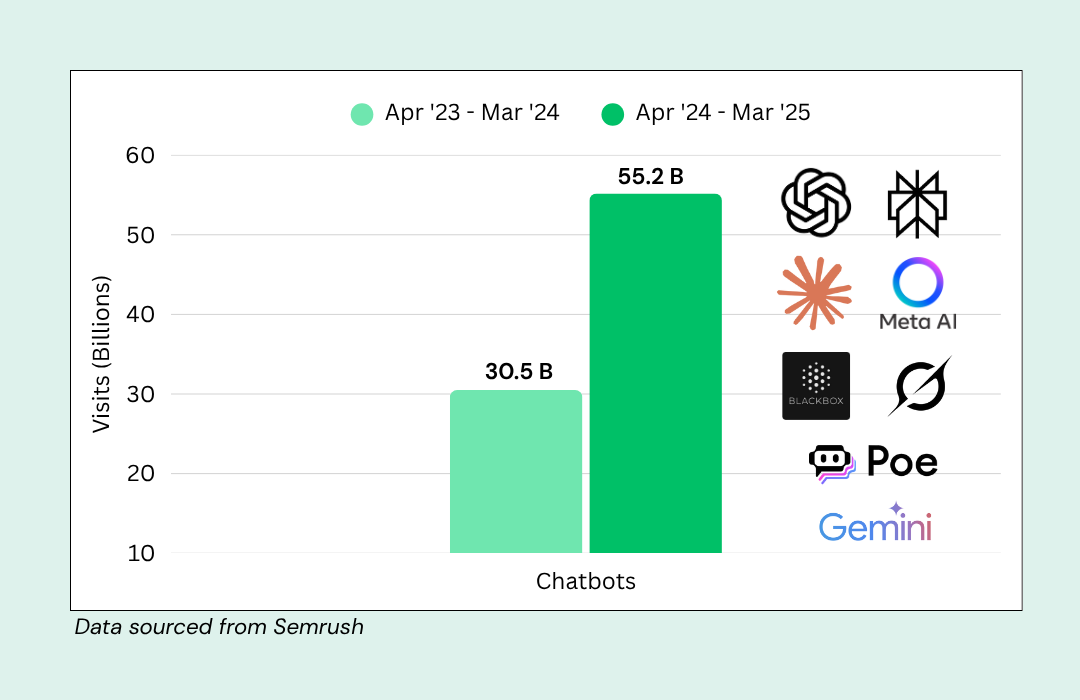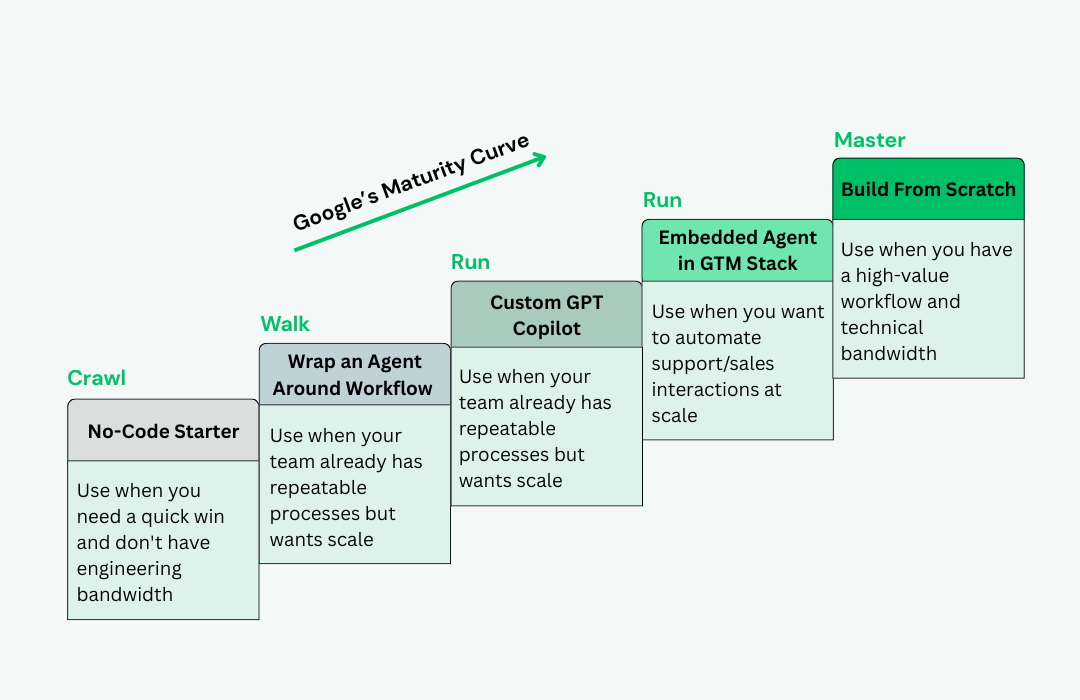With more than a fifth of the world’s population under lockdown, businesses slowing down, and a $2.7 trillion dollar cost to the global economy, the rapidly spreading coronavirus continues to disrupt business as usual.
As a result, B2B sales and marketing teams are yanked towards inside sales strategies like account-based marketing and remote selling.
Sales and marketing must banish silos and band together during this turbulent time.
Why Account-Based Marketing Is the Right Response
Due to the domino effects triggered by the virus, inbound marketing isn’t enough to maintain healthy lead generation and sales pipelines.
As evidenced by Ubersuggest’s founder, Neil Patel, data shows a drastic decline in web traffic and conversions for industries across the board. The chart below compares the week-to-week organic traffic drops for multiple industries:

Apart from a few outlying verticals like food, finance, medicine, and remote tech, web traffic is on an industry-wide decline. The same trend continues for conversion rates, too.

With businesses focused on damage control and decision-makers playing defense, account-based marketing is the key to steady revenue and a consistent pipeline.
It serves to unite sales and marketing teams, encourages an empathy-driven approach, and delivers personalized messages to high-value leads.
Ahead, I’ll explain how sales reps can enable marketers to enhance ABM initiatives during the COVID-19 crisis.
Create a Crisis-Countering ABM Action Plan
It’s critical that everyone understands the situation and what role they can play, especially sales and marketing leaders whose inputs are critical to the ABM process.
This means that sales, marketing, and C-suite teams need to unite and develop an adaptive ABM strategy.
While brainstorming with your team, address and document the following:
- The resources that are available to each department for ABM initiatives. In the midst of a crisis, this will help boost productivity without blowing your marketing and sales budgets.
- The existing/shifting responsibilities and roles for each team member. Drastic times will call for drastic measures. With COVID-19, outside sales teams have switched to inside. At the same time, marketing teams are doubling down on digital events and content.
- The adjusted benchmarks that will gauge success. In a recent survey of 250+ business executives, less than 30% reported growth as a priority during COVID-19. Unfortunately, not all companies will grow during a crisis. For some, benchmarks become bitter, but necessary pills to swallow as mitigating financial damage may override plans for growth.
After answering the points above, it’s easier to grasp the collective effort needed to execute ABM initiatives in a volatile marketplace.
Help Marketers Create Tailored Content for Target Accounts
A lot of B2B businesses rely heavily on in-person events and traditional marketing. And that’s where the bulk of their marketing budget is applied. In the wake of COVID-19, this is no longer an option.
With everyone at home, people are looking for more content to upgrade their skills or solve problems.
In response, companies are now allocating more resources to digital marketing and inside sales initiatives.
But, now is not the time for hard-selling or aggressive pitching.
It’s a time for empathy-driven content.
Working with marketing, sales reps rep can contribute to content that solves buyer-specific problems.
At Leadfeeder, for example, our customers are on the frontlines of B2B sales and are often engaged in outbound sales and social selling.
To help them adapt, we’re delivering free webinars and virtual outbound sales training to sales teams during the COVID-19 lockdown.

The Harvard Business Review, on the other hand, is publishing content to help readers work from home.

DataBox, a data-driven software provider, is publishing original research on how businesses are dealing with COVID-19.

During COVID-19, content should address the urgent problems that your customers face. That’s why sales reps need to sit down with marketing to discover the practical solutions that customers need.
Supply Marketing with Essential Sales Data and Insights
Acknowledging change, crafting a meaningful message and delivering tailored content is what adaptive ABM is all about.
While these responsibilities usually fall to Marketing, sales reps can enable better ABM by relaying the relevant sales data below to marketers:
1. CRM data from high-value accounts
While it can take time to populate answers and fields in a CRM, it’s a good way for reps to support marketers.
CRM fields include attributes like company size, industry, number of employees, and location; key information that marketers will use to fine-tune messaging and segment strategies for different accounts.
2. Ground-level interviews with customers and prospects
COVID-19 has forced companies around the globe to adapt their approach.
Sales reps can survey or interview customers to determine how their operations have changed. Marketers can then use this information to create personalized content for target accounts.
3. The reason behind “not sold” status
When a sale is lost, reps should talk to lost leads to find out why they failed to buy.
Understanding their buying behavior will not only help reps address future objections, but also give marketing insight into how customers think, the language they use, and what problems they’re looking to solve.
Curate Social Proof to Counter Defensive Spending
Testimonials, case studies, and referrals are powerful pieces of the B2B marketing puzzle.
They provide “peace of mind” to prospects who interact with your company — especially during a time where businesses (with dwindling budgets) are looking to curtail unnecessary risks and expenses.
By asking freshly closed, highly active, and loyal customers for testimonials, case studies, and referrals, sales reps provide marketers with strong social proof that’s needed for effective ABM.
A quick tip: When asking for social proof, reps should focus on past-customers who closely resemble the accounts you’re targeting. This enables marketing to make messaging more relevant and makes it easier for decision makers to say “yes.”
Final Takeaways for Effective ABM During The Covid-19 Crisis
“You are only as good as your team.” The axiom couldn’t be truer in the turbulent times we’re living in.
To survive and hit the ground running once the clouds of crisis inevitably part, Sales and Marketing need to support each other. When communicating with customers, they should:
- Lead with empathy — It’s a tough time for everyone, and many are still coming to grips with a sudden reality. Be tactful in your outreach and communications and focus on helping the human being on the other end.
- Remain resilient — It’s easy to slip into a panic when the rug is ripped from under you. Focus not on the problem you’re facing, but the solutions you can provide and create.
- Listen and adapt — Teams that adapt and pivot to their environment are the ones that succeed. But, you can only adapt and find opportunities if you know what’s going on at the ground level. That’s why listening to your customers in real-time is critical.







